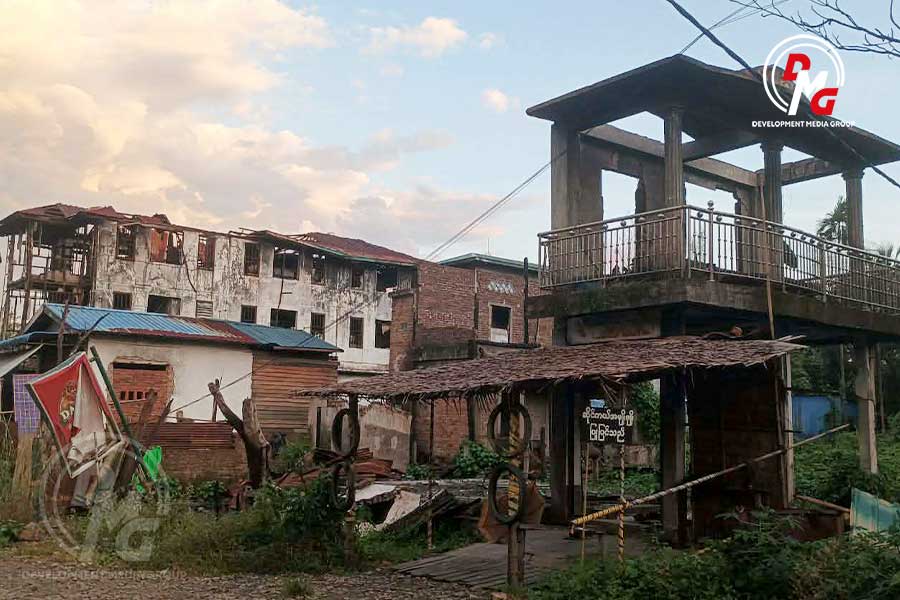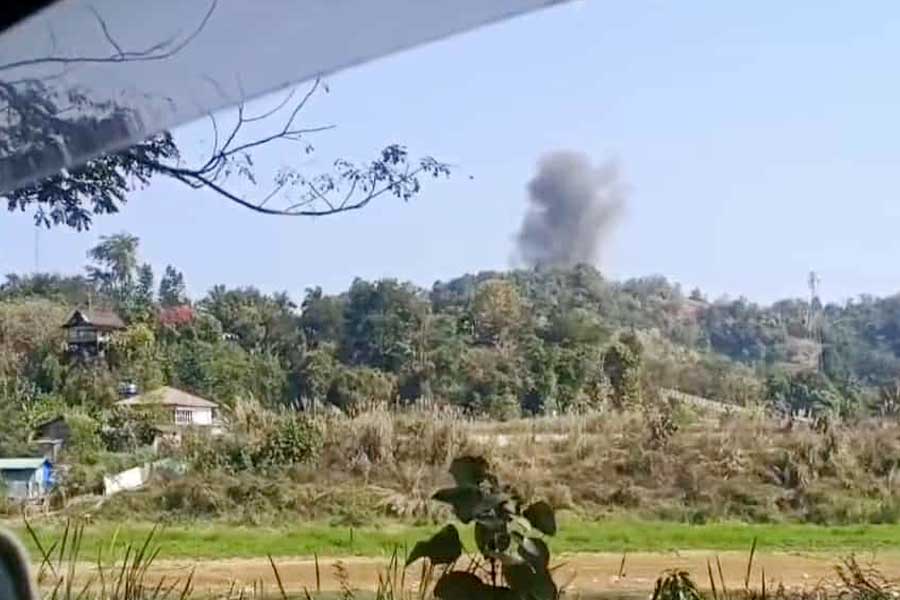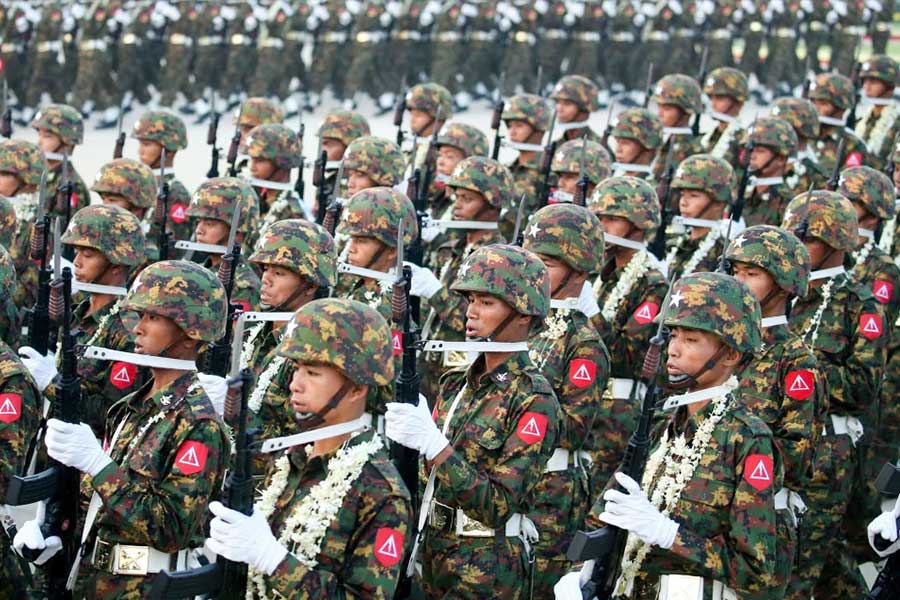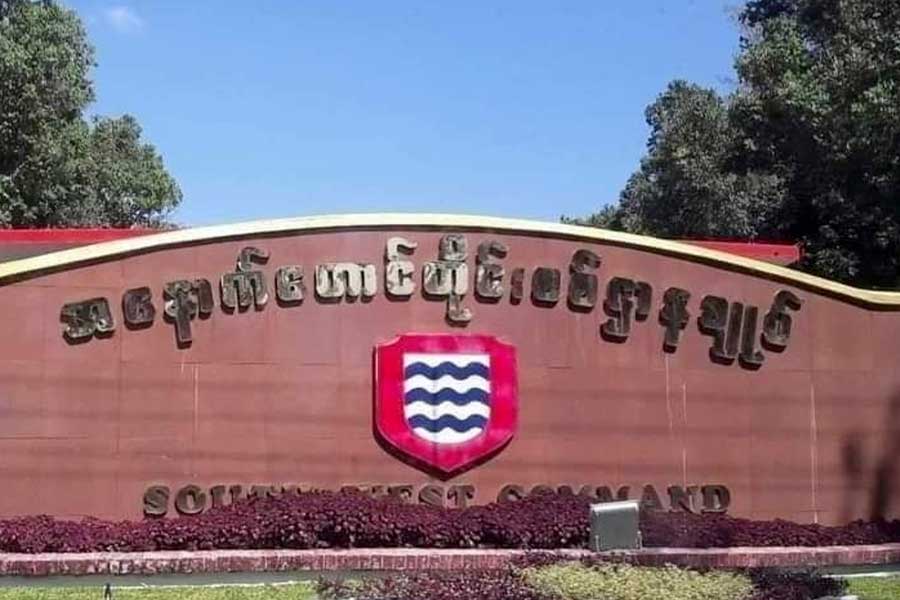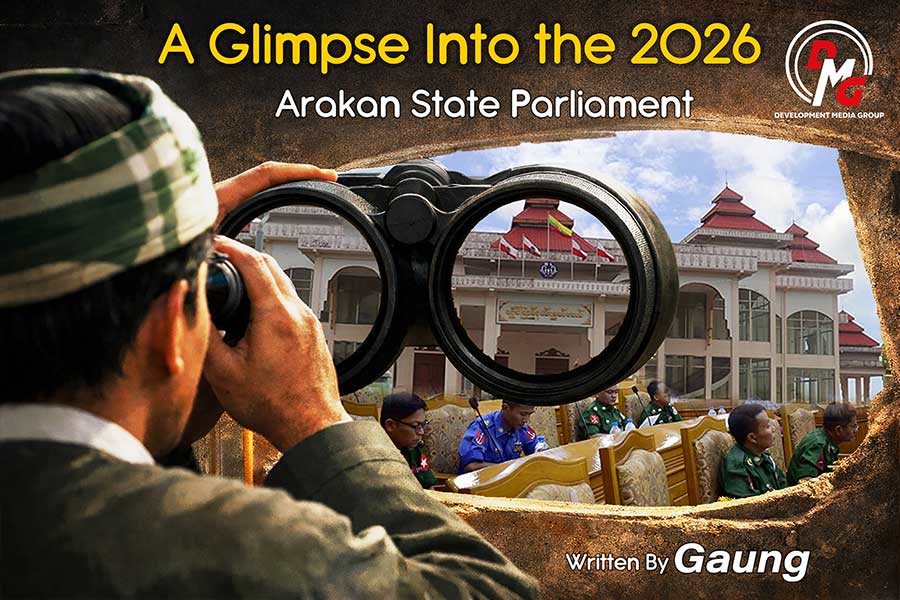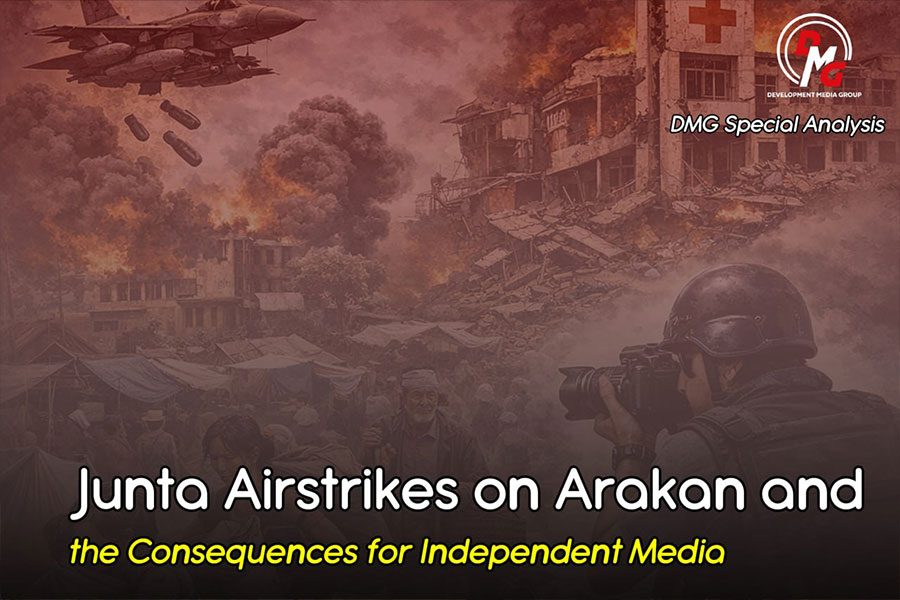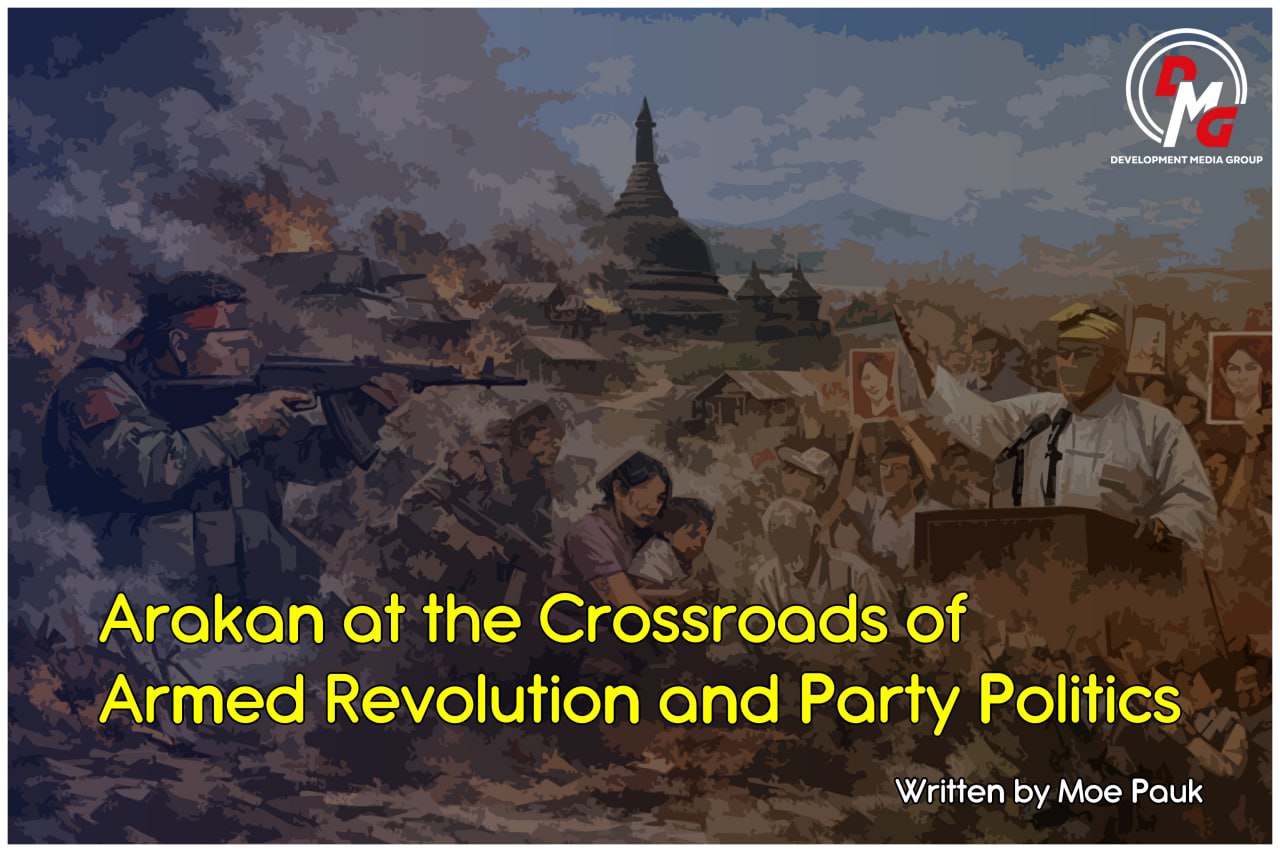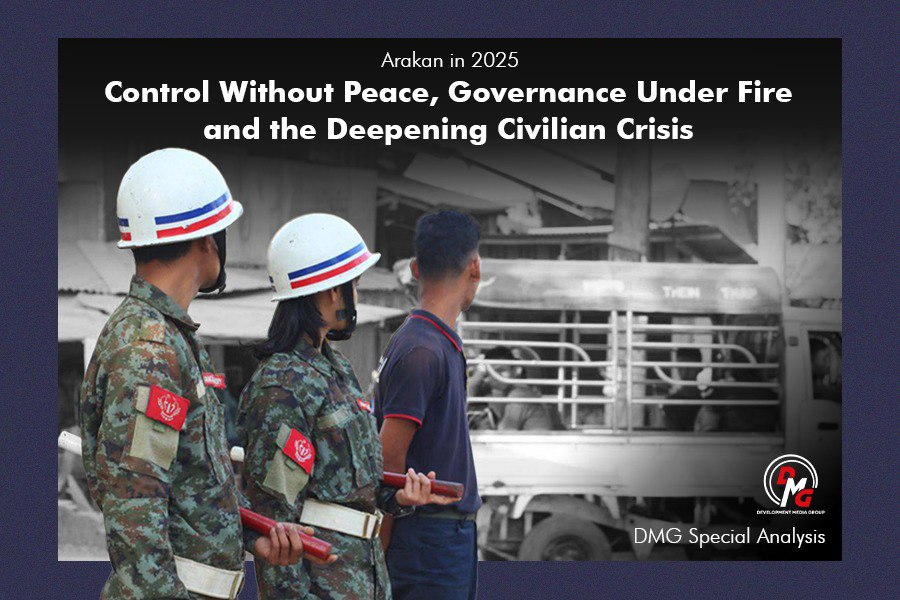- After Arakan fighting, Taungup residents struggle to rebuild homes
- Charcoal sales surge in northern Arakan after AA firewood ban
- General Khaing Razar in the Arakan Revolution
- Junta shows signs of resurgence as resistance forces face mounting challenges
- Fighting in Hpakant halts jade mining, residents face livelihood crisis
A Democratic, Federal Future and State Constitutions in Myanmar
The emergence of state constitutions is among the most important of the federal principles that ethnic armed organisations have been demanding for more than 70 years.
05 Oct 2020
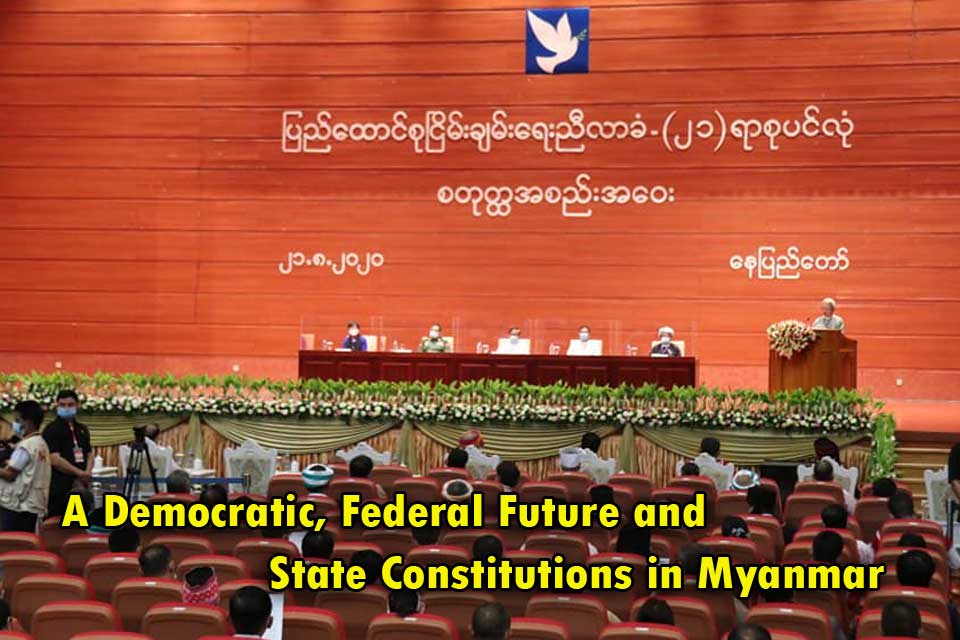
By Khaing Roe La | DMG
It cannot be denied that the existence of state constitutions is a basic requirement for building democracy and a federal union, a fact that Myanmar’s national races have been ardently emphasising for years.
That being the case, it is necessary to consider more seriously whether the failure to address this issue in Part III of the Union Accord, which was signed in August, was a dispute over terminology as some have contended, or is about something more fundamental.
The emergence of state constitutions is among the most important of the federal principles that ethnic armed organisations have been demanding for more than 70 years.
Peace negotiator Dr. Salai Lian Hmung Sakhong has said the drafting of state constitutions is the key to peace, making that statement at a press conference after a Union Peace Dialogue Joint Committee (UPDJC) meeting on August 17.
As vice chairman of the UPDJC and also a leader of the Chin National Front, Dr. Salai Lian Hmung Sakhong’s words carry weight.
Nonetheless, the matter was deferred in Part III of the Union Accord, signed on August 21 by the government, Tatmadaw, political parties and the 10 ethnic armed organisations that have signed the Nationwide Ceasefire Agreement (NCA). Part III is best described, optimistically, as a foundation for further efforts to build democracy and a federal union beyond 2020.
The fact that the terms of state constitutions, which ethnic armed groups are eager to address, could not be agreed and were thus not included in Union Accord Part III, has created concern over the future of the peace process and hopes for the emergence of a democratic, federal union.
The ethnic groups want guarantees of autonomy, national equality and democratic rights enshrined in state constitutions, considering these to be the essence of strong democracies in federal systems.
The leaders of ethnic groups were thus disappointed with the outcome of the Union Peace Conference – 21st Century Panglong, which punted the issue to future negotiations.
“We had expected that we would get to state constitutions at that time,” said a prominent voice in the peace process, Saw Mra Razar Lin from the Arakan Liberation Party. “We could have said that our expectations were met 50% if we had gotten to state constitutions. Now, there are more obstacles.”
There were three parts to the Union Accord Part III signed on August 21: The first deals with 15 framework agreements on implementation of the NCA. The second part deals with agreements on a step-by-step work process beyond 2020. The third addresses five guiding principles on building a union based on democracy and federalism.
Part III was signed in part as a product of discussions by the UPDJC, which consists of representatives of government, the Hluttaw (Parliament), Tatmadaw and NCA signatories. The totality of the agreements has been folded into the Union Accord and was also approved by the Hluttaw on August 26.
But the critical matter of drafting state constitutions has been put off for now.
‘In the Spirit of Panglong’
It is stated in Basic Principles (a) of Chapter 1 of the NCA as follows:
Establish a union based on the principles of democracy and federalism in accordance with the outcomes of political dialogue and in the spirit of Panglong, that fully guarantees democratic rights, national equality and the right to self-determination on the basis of liberty, equality and justice while upholding the principles of non-disintegration of the union, non-disintegration of national solidarity and perpetuation of national sovereignty.
Part I of the Union Accord echoes this in the sense that it too envisions a future Myanmar based on democracy and federalism.
At an event marking the fourth anniversary of the NCA’s signing, State Counsellor Daw Aung San Suu Kyi said on October 28, 2019, that states will have constitutions that ensure self-determination.
But in her opening address at the latest iteration of the Union Peace Conference on August 19, the state counsellor said the reason for deferring on state constitution matters was that agreement could not be reached on use of the words “state basic law” and “state constitution”.
“It was the result of attempts to define the meaning of words. In actual fact, this is because of concerns and anxieties existing on both sides. If we made further analysis of these concerns and worries, we would be able to see clearly and distinctly that it was because of looking with suspicions and not having enough trust,” Daw Aung San Suu Kyi was quoted as saying.
Political and Military Means
Major stakeholders among the ranks of government, the Tatmadaw, ethnic armed organisations and Myanmar’s ethnic people have been trying to resolve issues of war and peace by political means, not military means, using various committee meetings as implemented under the NCA framework, as well as informal discussions and other negotiations.
However, while many seek to resolve differences through political means, others in Arakan State have resorted to military means, resulting in incalculable losses in terms of lives and property. Needless to say, armed conflict dynamics in Arakan State are tense at the moment.
Myanmar’s future depends greatly on the sincerity and political will of the national races, the next government, ethnic armed organisations and the Tatmadaw. The involvement of the people and international allies will also be important in ensuring the success of Myanmar’s peace process.
Here’s to hoping the nation’s long-running civil war comes to an end as soon as possible, and that in its place a genuinely democratic, federal union at peace with itself can be achieved.




